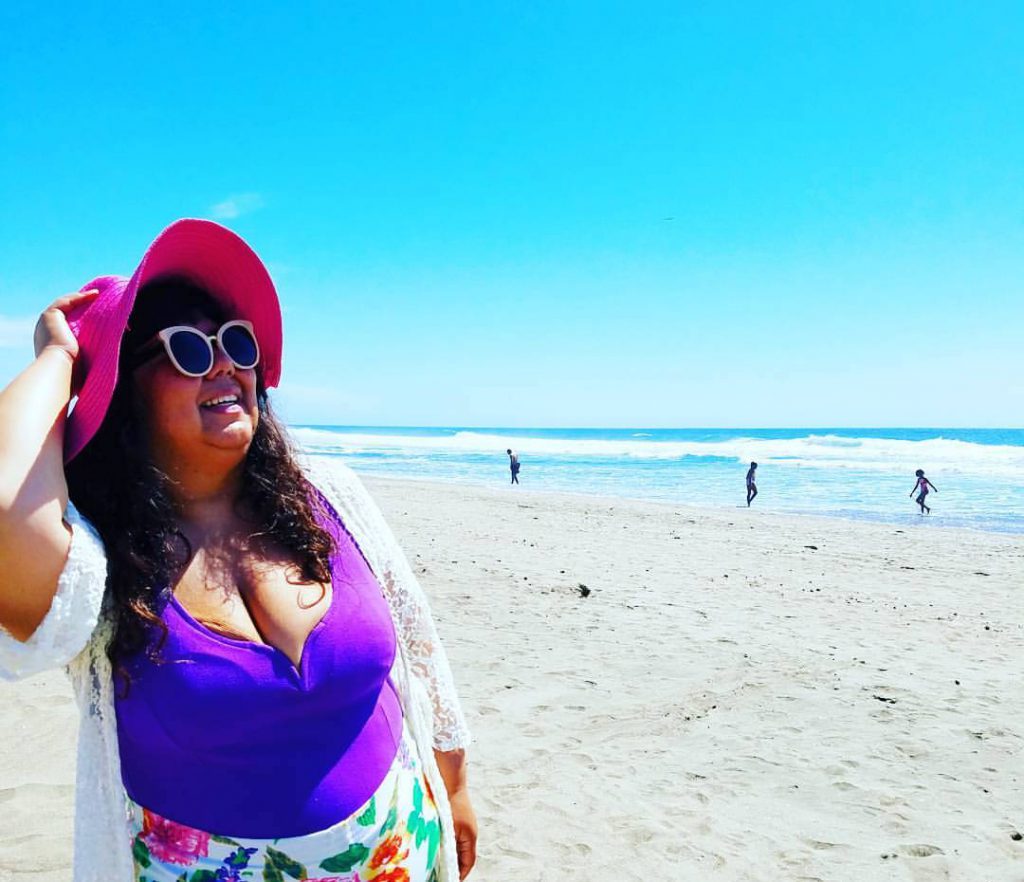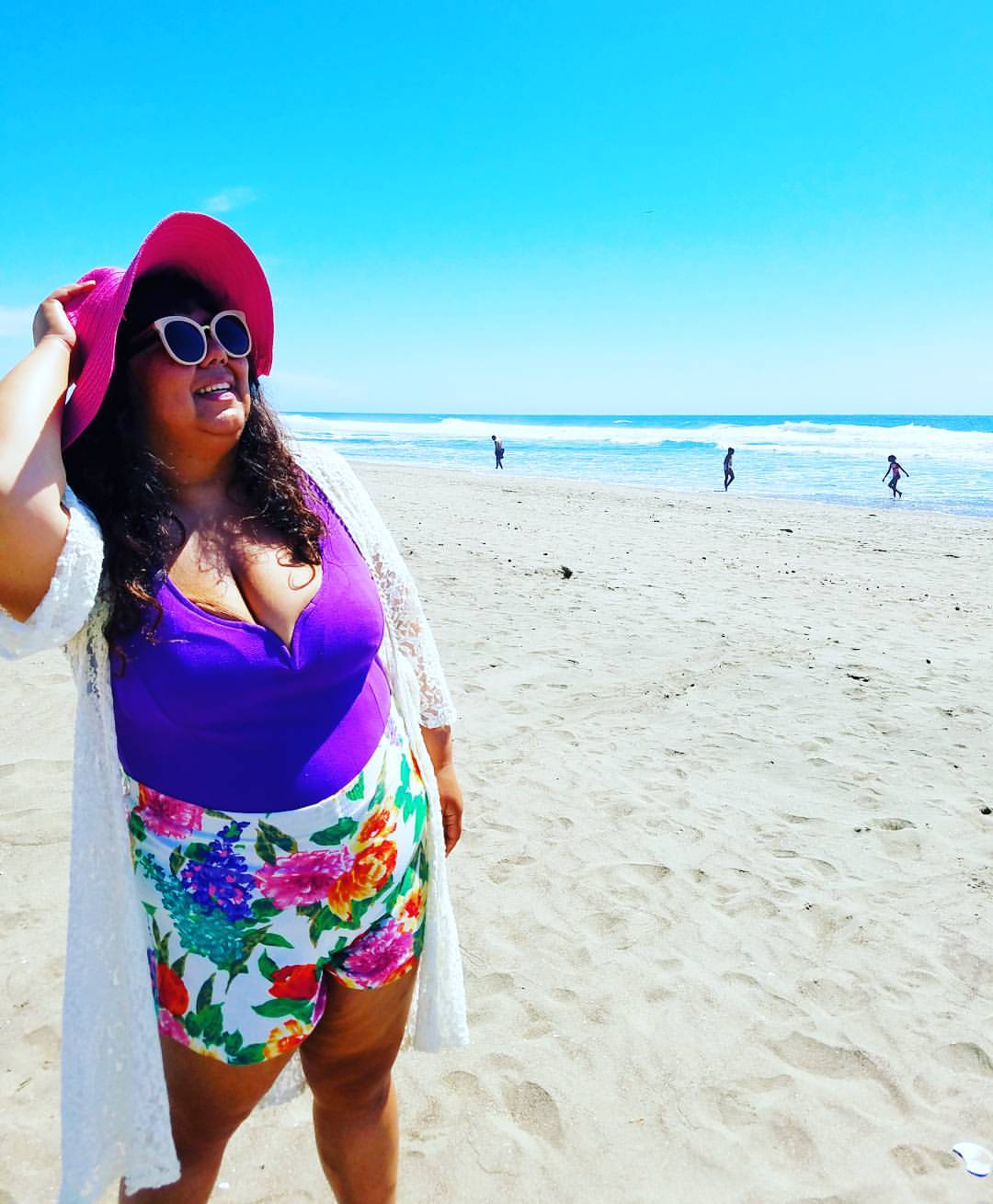I
I’m a donut-slinging vigilante, patriarchy’s hard-cock nightmare. My 250-pound body—jiggling proud—represents femininity uncontained. I didn’t make the terms; I’m just living under them. When people ask me how I got this way, I reply that I didn’t create a #churrosexual anti-assimilationist persona just to say “fuck you” to some boring-ass respectability politics. I was born into a world where any gesture not derived from shame or apology is constructed as an act of rebellion. I didn’t make my cleavage political; you did. I didn’t make this bikini anarchic; you did. I didn’t make my open-mouthed laugh, my belly flopping free, my high heels and short skirts, my bright lipstick, my self-documentation, my watermelon-flavored-gum-smacking declarations of dissatisfaction into gestures of subversion; you did. But, hey: you’re welcome.
II
I used to wake up every day with the thought, “I hate this body. Let me be someone, anyone else.” I dreamed of slim waists and pert belly buttons, pink nipples, denim rolled up so high you could see my deepest fears. I lived off iceberg lettuce, barbecue sauce, and toast in the summer of ’93. I cried with Richard Simmons, cried for our lives, believed we were the problem. I was the girl at church who sat on the stage, putting up the transparencies with the words to the hymns. I sucked in my stomach, scooped out my tits from my Kmart bra (I knew that, unlike me, they were worth something). I lived for the leers of the old men at the Pentecostal church where pompadours reigned, where white boys came in the bathroom, dreaming of the white girls—small in body, small in mind—they’d someday own.
III
I came to realize that my starvation was a metaphor. My plate was the ring, the battlefield, a tiny physical space (my whole world) where I could live out all the unnecessary satisfaction I had inherited, that I sensed all around me, in real time. I was being starved emotionally and spiritually—no meat, just bones—and so of course I learned to accept it and do it and love it. Eating meant freedom, which I had no appetite for. Each bite represented the most unfeminine of acts to me. Bites were the units I used to measure the distance to my biggest dreams. Food was failure. I found one of my diaries from childhood: it was small and pink, with a bear ballerina on the hard shiny cover; the edges of the pastel-rainbow-colored pages were delicately scalloped. It was part crush updates, part food journal. I wrote about my grandmother’s tamales; how I hated the way she tempted me. I couldn’t see her cooking as anything but our collective failure. We were brown and fat, and my grandfather had gold teeth, and my mother was possessed by a demon that made her sleep all the time, and I masturbated in the bathtub (each time thinking, “Surely this time Jesus will break my coochie!”), and none of the boys at school loved me, and we were bad at being Americans. My lunch was wrapped in foil: chicken breast or tuna, wheat bread that was soggy from the steam of the cooling chicken or from the oozing tuna. Joey Bree’s lunch signaled his clear ability to effortlessly convey his unassailable belonging: hermetically sealed fruit-flavored gelatin creatures, plastic bags that proudly announced the contents (nothing to hide here), peanut butter and jelly, juice boxes with heroes from the television.
IV
One day I opened a book, and it said that dieting “is a process by which the individual claims control over her body and thus shows her ability to understand her role in society.”1 It blew my damn mind. I read it over and over, even though I knew it was true from the very first reading. My role in society just wasn’t quite good enough for me, you know? Like I traveled a bazillion light years from a heretofore-unknown planet/star/galaxy through the magical vagina of my mother just to calorie count for the patriarchy? I don’t think so, boo.
V
Power is the public declaration of non-complicity. Power lies in the public consumption of tacos. It’s difficult to be a woke person. It’s difficult to remind myself that the illness is outside me, not inside. I don’t have to starve it out anymore. I don’t have to suck it up or suck it in.
1. Sander L. Gilman, Fat: A Cultural History of Obesity (Wiley, 2013).

